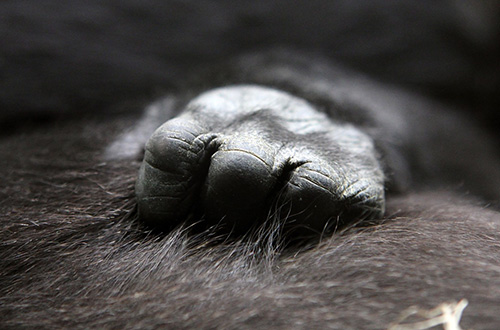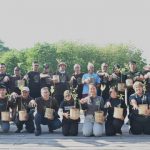Jakarta (Greeners) – Illegal logging and high demands have placed domesticated rare species with high risks of animals borne diseases (zoonoses), especially in Indonesia, said a veterinarian recently.
Indra Eksploitasia, a vet and Head of Environment and Forestry Engineering Center of Ministry of Environment and Forestry, said that massive illegal logging led to declining forest areas and species habitat. Consequently, these species which live far from humans become too close with settlement areas.
In addition, illegal wildlife trafficking also targeted for human consumption and collections. The rare the species, Eksploitasia said, the high the trading is. This is can lead to high risks of animal borne diseases.
READ ALSO: Weak Protection, Illegal Wildlife Trade Increases in Indonesia
The chain of illegal wildlife trade, which starts from hunting or encroachment, the trade and smuggling to the consumers, is considered as organized wildlife crime.
“One example is the yellow-crested cockatoos which most of them have been infected with H5N1,” she said adding that Indonesia had been declared as world’s number one country of animal borne transmission or zoonoses, including H5N1 or avian flu, rabies, anthrax, salmonellosis, and leptospirosis.
In addition, bovine TB, toxoplasmosis, brucellosis (infecting goat, sheep or dog), tuberculosis, swine influenza, nipa, brucellosis suis, q fever, camphylobacteriosis and cysticercosis.
Appears based on the situation
Zoonoses is a disease infected from human to animals and vice versa. Food and Agriculture Organization (FAO), World Health Organization (WHO), World Organization for Animal Health (OIE), and Global Alliance for Rabies Control (GARC) released a report stated that 70 percent of Emerging Infectious Disease is zoonoses.
“What Ministry of Environment and Forestry currently doing is at in situ conservation level which prevent zoonoses in the wild habitat,” she said. “Second, ex situ conservation level which means medical treatment to control zoonoses outside of the species habitat.”
READ ALSO: KLHK: Indonesia To Agreed Full Ban on Pangolin, Reluctantly
Animal Health Director of Ministry of Agriculture, I Ketut Diarmita, said that zoonoses appeared based on the situation so Indonesia has its own strategy to prevent it spreading.
He citing on avian flu which was predicted to break out every February to April. The treatment is different based on the trigger, whether it’s a virus or bacteria.
Diarmita said if it’s virus, it would hard to be cured but it can be prevented, such as anthrax from basilus anthraxis bacteria, which can be cured with wide spectrum antibiotics.
Reports by Danny Kosasih



















































